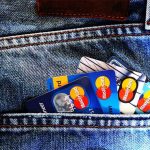The decision to have gastric band surgery can help you achieve significantly improved health. However, as with any surgery, it can generate anxiety. Many patients want to know what the recovery from this surgery is like, as well as how their life will change as a result. If you choose to have this surgery, you will also need to make many lifestyle changes as a result and understanding them is key to success.
You will work with several different professionals to create a plan that works for you, but having a general overview of what is expected can make you feel much more relaxed about the entire process. Here’s what you need to know:

The Post-Surgical Period
After surgery, you will wake up in a post-anesthesia care unit. Nurses will ensure that you are comfortable before transferring you to the floor. Typically, you will spend one night in the hospital after the procedure to ensure that everything is going as expected. In this immediate post-surgical stage, you should feel no pain because of medications, but you may have trouble staying awake.
You may notice that your throat hurts, which is a normal consequence of general anesthesia, which requires a breathing tube. After a few hours, nurses will typically get you up and walking multiple times to help with recovery. Walking actually reduces pain and it shows the team that you are mobile enough to leave the hospital.
When you go home, you will be given a device to help exercise your lungs, as well as some pain medications. Many surgeons also give their patients nutritional supplements as it can take some time for an appetite to return following such a big surgery. You will likely feel pain in the first few days, especially in your abdomen.
In the first few days, your activities will be very restricted, but it is important to get up and walk around regularly. Be sure to read your discharge instructions carefully to make sure you are doing all the activities requested by your surgeon and avoiding things that could cause harm.
The Early Recovery Period
After a few days, your life may be a bit more difficult than it was initially. During this period, you will start to feel hunger pains and crave food. Your movement will still be restricted and boredom can set in easily, so have a plan for keeping yourself entertained, especially if other members of the household will not be around.
At this point, much of the pain will have subsided, but you may have some lingering issues. Taking your pain medication as instructed will help keep this pain under good control but let your surgeon know if that is not the case.
Food can be the primary challenge during the first week after surgery. You will likely be restricted to a liquid diet to allow your body to heal and much of your nutrition will come from meal replacement shakes. Remove anything that could tempt you from your pantry, as even a single potato chip can cause very serious complications.
Eventually, you will be able to walk more and engage in new activities, but it is important to follow instructions from the surgeon and not push yourself too hard too quickly. Keep a close eye on your bowel movements and urine to make sure there are no signs of complications, such as blood.
The Late Recovery Period
After a couple of weeks of recovery, you will likely have your first follow-up visit. Write down any questions or concerns you have on a notepad throughout your recovery and bring them to this visit to make sure you get everything addressed. At this point, you will be back to your normal routine although you will still have exercise restrictions.
Many patients are happy to return to work and get relief from their boredom. Plus, fewer restrictions means you are doing well with recovery. You should not have much pain at this point. If you need more than a small amount of medication, speak to your surgeon about this. Around the end of week two is when you can drive again since you will no longer be taking scheduled pain medication.
Week two also brings the introduction of soft foods like soup, mashed potatoes, and pudding. You can also begin to puree food to mix up your diet. Pay attention to your surgeon’s instructions as some foods may still be restricted, even if they can be pureed. Introduce foods slowly and eat very small amounts at a time.
You will need some time to adjust to the new size of your stomach and eating too much will cause a lot of discomfort. If you take it slow and listen to your body, you should be able to avoid any pain related to overeating. Over time, you will be able to introduce more solid foods and return to a more normal diet, although what you eat will likely be radically different from previous meals.







